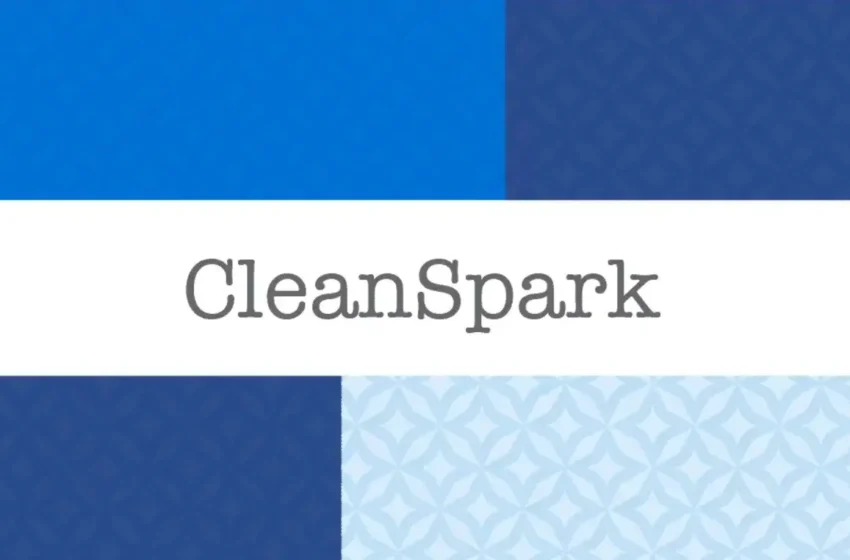CleanSpark Starts Selling Bitcoin Monthly to Fund Its Operations
(Originally posted on : Crypto News – iGaming.org )
CleanSpark is adjusting its approach to managing Bitcoin reserves by starting regular sales of a portion of its mined BTC. The company announced the change on April 15, alongside a new $200 million credit agreement secured through Coinbase Prime, the institutional arm of the popular crypto exchange.
Good to know
- CleanSpark will now sell part of its mined Bitcoin each month to fund operations
- It secured a $200 million credit facility backed by Bitcoin through Coinbase Prime
- The company launched its own institutional trading desk for BTC transactions
Together, the credit line and BTC sales are designed to help CleanSpark rely less on external funding and more on its own cash flow.
Zach Bradford, CleanSpark’s CEO, described the move as a turning point for the company. “We believe this is the right time to evolve from a nearly 100% hold strategy adopted in mid-2023 and move back using a portion of our monthly production to support operations,” he said.
The decision aims to avoid the common industry trend of relying on selling equity or taking on more debt to fund growth. Bradford added that CleanSpark now has the ability to “self-fund operations, augment our bitcoin treasury, and contribute to expansion capital through operational cash flow.”
New players only. Exclusive Welcome Bonus of 177% + 77 Free Spins
As part of the shift, CleanSpark has launched its own institutional Bitcoin trading desk. Now the company will have more control over its BTC sales while reducing reliance on third-party platforms and intermediaries. The goal is to make transactions more efficient and cost-effective as they begin selling BTC regularly.
Why Is CleanSpark Breaking Away From Hold-Only Strategy?
In recent quarters, Bitcoin miners have faced rising pressure due to weaker stock performance and fluctuating BTC prices. These conditions have raised the effective cost of capital across the sector. Some mining firms have had to speed up loan repayments or dilute shareholder value to stay afloat.
CleanSpark wants to avoid both. By selling Bitcoin in a measured and consistent way, the company is aiming to strike a balance—maintaining a healthy treasury while covering day-to-day expenses and growth initiatives from its own earnings.
Bradford believes the shift will help CleanSpark stand out from other miners “who continue to rely on equity dilution to fund operating costs or increased leverage to grow their Bitcoin reserves.”







 Bitcoin
Bitcoin  Ethereum
Ethereum  Tether
Tether  XRP
XRP  USDC
USDC  Solana
Solana  TRON
TRON  Dogecoin
Dogecoin  Lido Staked Ether
Lido Staked Ether  Figure Heloc
Figure Heloc  WhiteBIT Coin
WhiteBIT Coin  Bitcoin Cash
Bitcoin Cash  USDS
USDS  Cardano
Cardano  LEO Token
LEO Token  Wrapped stETH
Wrapped stETH  Hyperliquid
Hyperliquid  Ethena USDe
Ethena USDe  Wrapped Bitcoin
Wrapped Bitcoin  Canton
Canton  Binance Bridged USDT (BNB Smart Chain)
Binance Bridged USDT (BNB Smart Chain)  Chainlink
Chainlink  Monero
Monero  Stellar
Stellar  USD1
USD1  Wrapped eETH
Wrapped eETH  Rain
Rain  Dai
Dai  sUSDS
sUSDS  Hedera
Hedera  PayPal USD
PayPal USD  Litecoin
Litecoin  Coinbase Wrapped BTC
Coinbase Wrapped BTC  Zcash
Zcash  Avalanche
Avalanche  Shiba Inu
Shiba Inu  WETH
WETH  Sui
Sui  Toncoin
Toncoin  Cronos
Cronos  USDT0
USDT0  World Liberty Financial
World Liberty Financial  Tether Gold
Tether Gold  MemeCore
MemeCore  PAX Gold
PAX Gold  Uniswap
Uniswap  Polkadot
Polkadot  BlackRock USD Institutional Digital Liquidity Fund
BlackRock USD Institutional Digital Liquidity Fund  Ethena Staked USDe
Ethena Staked USDe  Mantle
Mantle  Falcon USD
Falcon USD  Aave
Aave  Aster
Aster  Pepe
Pepe  Global Dollar
Global Dollar  Bittensor
Bittensor  Circle USYC
Circle USYC  Bitget Token
Bitget Token  OKB
OKB  Ripple USD
Ripple USD  syrupUSDC
syrupUSDC  HTX DAO
HTX DAO  Pi Network
Pi Network  Sky
Sky  BFUSD
BFUSD  Ethereum Classic
Ethereum Classic  NEAR Protocol
NEAR Protocol  Ondo
Ondo  Superstate Short Duration U.S. Government Securities Fund (USTB)
Superstate Short Duration U.S. Government Securities Fund (USTB)  Internet Computer
Internet Computer  Gate
Gate  POL (ex-MATIC)
POL (ex-MATIC)  KuCoin
KuCoin  Pump.fun
Pump.fun  Worldcoin
Worldcoin  Cosmos Hub
Cosmos Hub  Jupiter Perpetuals Liquidity Provider Token
Jupiter Perpetuals Liquidity Provider Token  Midnight
Midnight  Quant
Quant  USDtb
USDtb  NEXO
NEXO  Jito Staked SOL
Jito Staked SOL  Ethena
Ethena  Spiko EU T-Bills Money Market Fund
Spiko EU T-Bills Money Market Fund  Binance-Peg WETH
Binance-Peg WETH  Official Trump
Official Trump  Rocket Pool ETH
Rocket Pool ETH  Algorand
Algorand  USDD
USDD  Binance Bridged USDC (BNB Smart Chain)
Binance Bridged USDC (BNB Smart Chain)  pippin
pippin  OUSG
OUSG  Wrapped BNB
Wrapped BNB  Janus Henderson Anemoy AAA CLO Fund
Janus Henderson Anemoy AAA CLO Fund